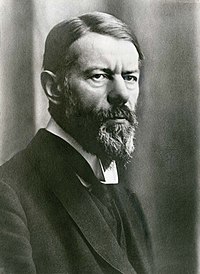
Photo from wikipedia
Weber’s claim that Calvinism eliminated magic from the world, inserted into The Protestant Ethic in 1920 and arising out of research reported in The Sociology of Religion, entails a sociological… Click to show full abstract
Weber’s claim that Calvinism eliminated magic from the world, inserted into The Protestant Ethic in 1920 and arising out of research reported in The Sociology of Religion, entails a sociological but also a theological proposition identified in this article. Weber’s conceptualization of magic permits his examination of the economic ethics of the world religions. Non-European cases, including China, are examined by Weber to confirm his Protestant Ethic argument regarding modern capitalism. He holds that Confucian rationality, associated with bureaucratic order, is compromised by its tolerance of magic. Weber contrasts this with the Calvinist rejection of magic. Weber’s claims regarding Calvinist demagicalization are made without regard to the Reformation Calvinist obsession with satanic witchcraft, in which the efficacy of magic is accepted as real. The distance between Calvinism and Confucianism, essential to Weber’s argument, is thus narrowed.
Journal Title: European Journal of Social Theory
Year Published: 2018
Link to full text (if available)
Share on Social Media: Sign Up to like & get
recommendations!